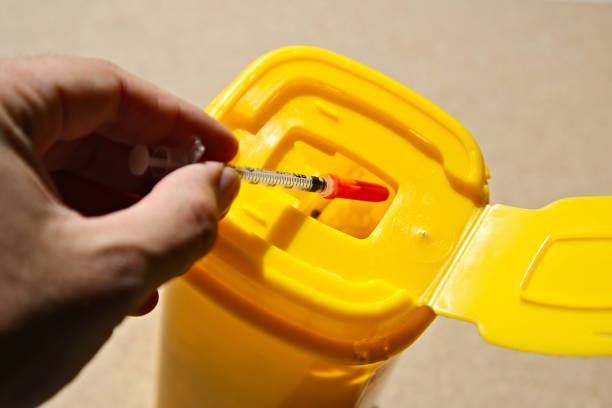Introduction
In the healthcare industry, the proper management of pharmaceutical waste is of utmost importance to ensure the safety and well-being of both patients and healthcare workers. New York healthcare facilities, in particular, face unique challenges when it comes to handling and disposing of pharmaceutical waste. This article will delve into the best practices for pharmaceutical waste management in New York healthcare facilities, highlighting the importance of compliance with regulations and the availability of reliable waste management services.
Best Waste Management Service in NY: Ensuring Compliance and Safety
Proper waste management is crucial in healthcare facilities to prevent environmental pollution and minimize health risks. In New York, where regulatory requirements are stringent, it is essential for healthcare facilities to partner with a reputable waste management service provider that specializes in pharmaceutical waste disposal. By choosing the best waste management service in NY, healthcare facilities can ensure compliance with regulations while maintaining a safe environment for all.
Sub-Understanding Hazardous Waste Disposal Service New York
Hazardous waste disposal service providers play a critical role in assisting healthcare facilities with the safe and compliant disposal of pharmaceutical waste. These services are designed to handle hazardous materials that could pose a threat to human health or the environment if not managed properly. In New York, where strict regulations govern such activities, partnering with a reliable hazardous waste disposal service provider is essential.
Sub-Importance of New York Medical Waste Disposal
Medical waste, including pharmaceutical waste, must be disposed of properly to prevent contamination and potential harm. In New York, medical waste disposal guidelines are particularly rigorous due to the state's commitment to protecting public health and the environment. Healthcare facilities must adhere to these guidelines by utilizing specialized services that understand the unique requirements of medical waste disposal in New York.
Pharmaceutical Waste Management: A Comprehensive Approach
Managing pharmaceutical waste involves more than just disposing of expired medications or unused drugs. It requires a comprehensive approach that encompasses various aspects, including segregation, storage, transportation, and disposal. Healthcare facilities must implement best practices for pharmaceutical waste management to ensure efficiency, safety, and compliance.
Sub-Segregation: The First Step towards Effective Management
Proper segregation of pharmaceutical waste is crucial to prevent cross-contamination and potential harm. Healthcare facilities should establish clear guidelines on how to segregate different types of waste, such as expired medications, partially used vials, or contaminated materials. This helps streamline the disposal process and ensures that each type of waste is handled appropriately.
Sub-Storage: Ensuring Safety and Compliance
Storing pharmaceutical waste correctly is vital to prevent accidental exposure or unauthorized access. Facilities should designate specific areas for storing pharmaceutical waste and ensure they are secured with appropriate locks or access controls. Additionally, healthcare providers must follow storage time limits specified by regulations to minimize the risk of potential hazards.
Sub-Transportation: Safely Moving Pharmaceutical Waste
Transporting pharmaceutical waste from healthcare facilities to disposal sites requires careful planning and adherence to regulations. Facilities should partner with waste management service providers that offer specialized transportation services for medical and pharmaceutical waste. These providers have the necessary expertise and equipment to ensure safe transport while complying with New York regulations.
FAQs about Pharmaceutical Waste Management in New York Healthcare Facilities
Q: What are the main regulations governing pharmaceutical waste management in New York healthcare facilities? A: In New York, healthcare facilities must comply with the Resource Conservation and Recovery Act (RCRA), Hazardous Waste Regulations, and Department of Environmental Conservation (DEC) guidelines for proper pharmaceutical waste management.
Q: Are there any specific requirements for labeling pharmaceutical waste in New York? A: Yes, healthcare facilities must label all containers holding pharmaceutical waste with specific information such as the contents' name, accumulation start date, and hazardous characteristics if applicable.


Q: Can healthcare facilities dispose of pharmaceutical waste through regular trash collection? A: No, pharmaceutical waste should never be disposed of with regular trash. It must be segregated and properly managed to prevent environmental contamination and health risks.
Q: How often should healthcare facilities review and update their pharmaceutical waste management protocols? A: It is recommended that healthcare facilities periodically review and update their pharmaceutical waste management protocols to ensure compliance with changing regulations and industry best practices.
Q: What should healthcare facilities do with controlled substances that are no longer needed? A: Controlled substances should be managed according to Drug Enforcement Administration (DEA) regulations. Facilities should work with registered reverse distributors or the DEA to safely dispose of these substances.
Q: How can healthcare facilities ensure the reliability of their waste management service provider? A: Healthcare facilities should choose a waste management service provider that is fully licensed, insured, and compliant with all relevant regulations. Checking references, certifications, and adherence to best practices can help verify their reliability.
Conclusion
Proper pharmaceutical waste management is crucial in New York healthcare facilities to protect public health and the environment. By following best practices, partnering Pharmaceutical Waste with reliable waste management service providers, and staying up-to-date with regulations, healthcare facilities can effectively manage pharmaceutical waste while ensuring compliance and safety. Remember, choosing the best practices for pharmaceutical waste management in New York healthcare facilities is not only a legal obligation but also a moral responsibility towards society's well-being.